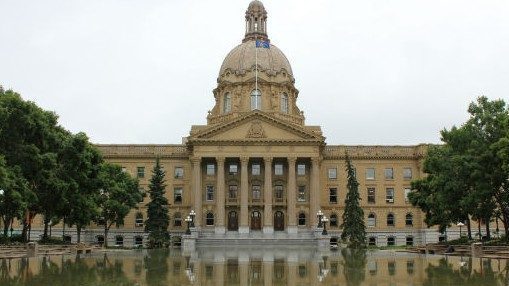Following a summer-long public engagement the NDP government introduced amendments Tuesday to a section of Bill 21, the Modernized Municipal Government Act, to reflect concerns of smaller and rural communities across the province.
If you want to provide feedback on the proposed changes to the MGA you can complete an online survey here.
“I want to say thank you to the thousands of Albertans who took the time to provide their feedback to make this legislation even better. Amendments that were tabled today would make the Modernized Municipal Government Act stronger and more effective, thanks to what we heard,” said Danielle Larivee, Minister of Municipal Affairs. “For the feedback that addressed new, but important, areas for change I am pleased to share the discussion guide on what changes we hope to make in the spring based on that feedback.”
In the original bill tabled May 31, changes were proposed to the off-site levies that municipalities can charge developers to help pay for roads, storm and sewer systems, and other infrastructure related to servicing the development. The change would allow municipalities to use those levies to build fire halls, police stations, community recreation facilities and libraries with the dollars collected from those one-time fees paid by developers if the development benefitted from at least 30 per cent of the amenity being built.
After visiting 20 communities across Alberta the province is moving to remove the 30 per cent minimum requirement to make the use of the money collected from off-site levies accessible to smaller and more remote communities, which could serve as a benefit to the RMWB.
“Expanding the scope of offsite levies ensures that the cost of building the infrastructure necessary to support Alberta’s growing communities is distributed fairly. We appreciate that the province listened to municipalities’ concerns and removed the proposed 30 per cent restriction as it would have prevented this tool from being used in many communities experiencing growth across Alberta,” said Lisa Holmes, President, Alberta Urban Municipalities Association. “Municipal governments will now have the flexibility they need to work with local developers to assess levies that are appropriate for their communities.”
Other amendments include technical and clarifying matters related to planning and development, assessment and Inter-municipal Collaboration Frameworks.
A number of new ideas were also raised during the summer engagement tour. To fully explore those with Albertans, the government is releasing Continuing the Conversation: Further Topics for Discussion on the Municipal Government Act. The guide summarizes topics that emerged over the summer and proposes ways the act could be amended to address them.
For example, the government heard there is interest in considering parental leave policies for municipal councillors. There is no specific reference to such leave in the MGA, but the discussion guide outlines ideas that might encourage more parents and women to seek public office.
“It’s great to see this potential change as part of the discussion moving forward,” said Bev Esslinger, Edmonton City councillor in Ward 2. “There are so many bright, talented women out there and having a child should not be reason to hold any of them back from becoming a municipal leader.”
The MGA does not give municipalities explicit authority to incorporate environmental stewardship considerations in their operational and land-use decision-making processes. The discussion guide proposes a policy that would allow environmental stewardship to be included as a municipal purpose.
“Municipalities play a pivotal role in environmental management and protection in Alberta,” said Brenda Heelan Powell, Staff Counsel, Environmental Law Centre. “Expanding and clarifying municipal purposes to include environmental stewardship benefits all Albertans and ensures municipalities can address their constituents’ environmental goals. Enabling direct, local action by municipalities to address environmental concerns – such as protecting environmentally sensitive areas and responding to climate change – is key to building resilient and sustainable communities.”
Other topics for discussion include municipal collaboration with school boards, and finding ways to help Indigenous communities and neighbouring municipalities work together on land-use planning and service delivery.
Albertans can have their say through an online questionnaire or written submissions until Jan. 31, 2017. The government will review the feedback and bring forward any amendments during the spring session. All changes to the act, including regulations, would come into force before municipal elections in the fall of 2017.
The proposed changes to the MGA do have consequences for tax revenues across the RMWB because of changes being made to the ratio of commercial to residential taxation and assessment. The RMWB is considering creating a transition plan in alignment with members of industry to ease the shock of moving from an 18.3/1 ratio to a 5:1 ratio with the proposed changes.
That transition plan is up for debate at Tuesday night’s meeting of council.







